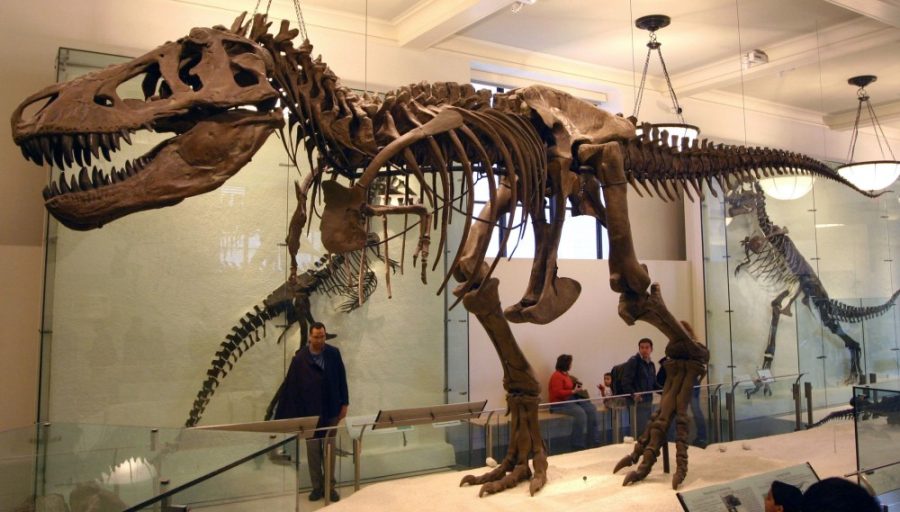Researchers made advancements in several fields last week. From dinosaurs to orange juice, there is never a dull moment in science.
Juice may not be as unhealthy as once thought
A long-standing parental debate has revolved around the health benefits and consequences of children drinking fruit juice. Some parents believe that it sets their children up for a life of unhealthy living and obesity, while others may not see a problem with it. A recent review of several studies related to this topic may ease parents’ minds.

The review, published in the journal Pediatrics, focuses on eight different studies about juice and how it affects children’s health and weight gain.
The biggest complaint against children drinking juice is that the extra sugar—as much as 36 grams in an 8-ounce serving depending on the fruit—will lead to severe weight gain. The data suggests that this is not the case.
According to the studies reviewed, juice contributes only a small amount to weight gain. The researchers determined that for children ages 1-6, a single serving of 100 percent juice per day added just 0.18 to 0.33 pounds to weight over the course of a year.
Scientists consider this evidence that juice is not as harmful to a child’s health was previously thought, but caution that sugar-added drinks, like fruit cocktails, could be much more fattening.
RELATED: Evidence of new dinosaurs found in Idaho
Nerves suggest tyrannosaur had sensitive face
Paleontologist Thomas Carr at Carthage College in Wisconsin recently discovered that a new species of carnivorous dinosaur may have had an unusually sensitive snout.
The skulls of the species, Daspletosaurus horneri, show evidence of many nerve endings in the snout, similar to those of crocodiles. In crocodilians, these nerve endings are connected to sensory organs able to detect both temperature and touch. Carr suggests that the sensitive snout would have allowed D. horneri to detect its young and gently pick them up.
The discovery has led Carr to suggest that all tyrannosaur dinosaurs, including the famous Tyrannosaurus Rex, may have had these nerve endings.
While this research is new, D. horneri have been uncovered in Montana since the 1990s.
RELATED: Psychologists connect sleep to good learning in toddlers
ADHD leads to gender differences in brain
Research from the Kennedy Krieger Institute in Baltimore has uncovered more differences between girls and boys with attention-deficit/hyperactivity disorder (ADHD).
It is known that males and females diagnosed with ADHD demonstrate different symptoms. While girls typically have a difficult time focusing on a given task, boys often experience motor coordination abnormalities. Prior research also shows that some parts of their brains will look different as well.
The new research has discovered differences in the structure of the cerebellum, the portion of the brain in charge of motor function .
MRI scans done on girls diagnosed with ADHD aged 8-12 showed that they had different volumes of various regions within their cerebellums. Boys with ADHD demonstrated differences as well.
However, the boys involved in the study displayed abnormalities in different areas of the cerebellum as compared to the girls. In particular, the biggest gender disparity occurred in areas of the cerebellum associated with higher motor function.
Researchers plan to expand the study and include more subjects within the next few months.
Exhaustion can increase awareness of food
A study presented at the Cognitive Neuroscience Society’s annual meeting suggests that exhaustion leads to the brain becoming more aware of the smell of food, potentially leading an individual to consume more in a sleep-deprived state.
To test the theory, scientists controlled the food intake of adults with four hours of sleep, and then had the subjects inhale food related scents, such as cinnamon, and non-food related scents, like the smell of a pine tree. The experiment was repeated later on, with the subjects having eight hours of sleep.
The sleep-deprived subjects demonstrated more activity in the areas of the brain that control smell when they inhaled food-related scents, something that did not occur when the subjects smelled non-food scents or when they were well-rested. This suggest that there may be a link between sleep deprivation and the amount of food an individual consumes.
Follow Nicole Morin on Twitter.









